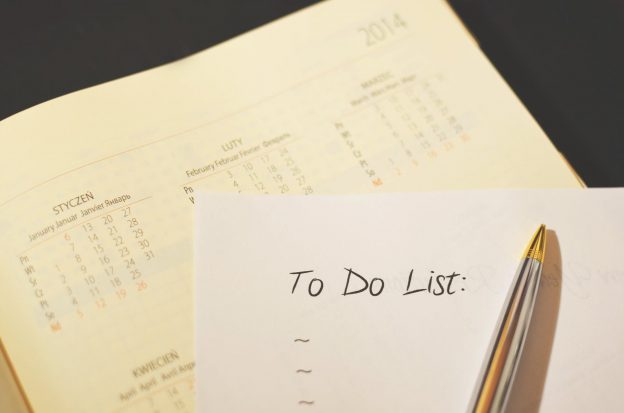
Workplace stress is one of the leading causes of mental health problems in employees today. If you feel like you are facing too much pressure at work, there are certain steps you can take yourselves to minimise it.
Follow these steps to alleviate yourself from too much pressure at work and lead a stress-free life.
When it comes to sleep, get enough sleep
Stress at work can cause a vicious cycle. Tension can trigger you to remain awake during the night, and this lack of sleep will leave you susceptible to even more stress. Being well-rested will make handling your feelings and coping with stresses much simpler. To set yourself up for a much better night’s sleep, attempt the following:
- Decline stimulation at nights by reading, taking a bath or practising mild yoga.
- Don’t consume coffee after 12 midday. Caffeine can remain in your body for approximately 12 hours!
- Consuming foods which contain melatonin, magnesium and tryptophan, all of which promote sleep.
- Going to bed at the same hour every night.
- Practising left-nostril breathing – a yoga technique that is believed to promote relaxation
- Repeat favourable affirmations – “I can fall asleep at 10pm”.
- Aligning your internal rhythm by making a point of exposing yourself to sunlight in the day and total darkness in the evening.
- Taking two 15-minute “relaxation breaks” in the day.
Talk with an attentive listener
Talking face-to-face with a relaxed and balanced listener can help relax your nervous system and ease stress. The goal isn’t to have the individual “repair” your issues, it’s merely a chance to unload.
Consume well
Healthy eating is not about denying yourself of the foods you love or staying unrealistically stringent concerning what enters into your mouth. It’s about sustaining yourself with foods that make you feel terrific, increase your energy levels, enhance your outlook, and stabilise your mood. Diet plan can have an extensive result on your state of mind and sense of health and wellbeing, with processed meats, packaged meals and sugary snacks all being strongly linked to today’s higher rates of depression, tension, bipolar illness and stress and anxiety.
Eating an unhealthy diet plan can even play a function in the development of ADHD, Alzheimer’s illness, schizophrenia, and the danger of suicide. Consuming well can assist you much better manage symptoms if you’re experiencing psychological health issues. Particular nutrients, such as protein, monounsaturated fat, carotenoids, folate, calcium and fibre are understood to have mood-boosting qualities, but by consuming frequent and little meals you can help your body maintain an even level of blood sugar, keep your energy up, remain focused, and avoid mood swings.
Create a well-balanced schedule

Those who discover themselves very worried at work typically might be giving too much value to what occurs in the work environment. While there’s absolutely nothing wrong with attempting tough and being ambitious, attempt to bear in mind that the purpose of work is to enable you to live a great life. Alter your concerns so that work is not your only priority, you find that your office anxiety will reduce. Analyse your schedule, responsibilities, and day-to-day tasks and attempt to discover some kind of healthy balance. No play and all work is a recipe for burnout. So make sure to consist of time for work, domesticity, social activities, singular pursuits, everyday duties and downtime.
Leave earlier in the morning
Frantically hurrying to your desk every morning will leave you feeling flustered and include to your stress levels. Try leaving 15 minutes earlier each early morning, and decrease your commute. Leaving a little earlier will let you reduce into your day. This may also mean that you miss the worst part of rush hour, indicating you will have a more unwinded journey.
Delegate
Over-committing yourself to lots of tasks may suggest you simply have excessive on your plate. First of all, understand when to say no, and then discover ways to delegate jobs you don’t need to do yourself. Let go of the desire to control whatever, and realise you can’t do it all by yourself. It’s okay to ask for help. Taking everything upon yourself is the leading cause of feeling too much pressure from work.
Break jobs up and prioritise
If a big job seems frustrating, break it up into smaller sized tasks and develop a detailed strategy. Focus on the most workable and important tasks first, and before you understand it there will be light at the end of the tunnel. You could likewise try getting the most unpleasant of tasks done initially so that the remainder of the task appears more pleasurable.
Improve your emotional intelligence

Emotional intelligence is simply as crucial as intellectual ability, if not more so. It has 4 significant elements: self-awareness, self-management, social awareness, and relationship management. Taking actions to enhance these components, such as trying to find methods to influence, influence, and get in touch with others in your workplace can assist distress your workplace. Identifying your own feelings and the impact they have will likewise help the situation. Laugh more, solve dispute rapidly, and aspect in the sensations of yourself and your coworkers when making decisions.
Break bad practices
Workplace stress and anxiety can be the result of some of your own undoing’s, such as operating in a messy environment, constantly requiring perfection, and trying to control the uncontrollable. Turning these practices around can make an effect on your total anxiety levels. Comprehend that no project is ever going to be ideal and that it doesn’t have to be. Submit work directly away, and keep your desk clear. Look for the excellent in your work rather of the bad, and accept the aspects that run out your control.
Discover the “off” button

Carrying your deal with you anywhere you go can be extremely exhausting, so be sure to hit the “off” switch now and again. Turn your phones and devices off in between 7 pm and 7 am and avoid checking emails at lunch. Take your sandwich far from your desk and focus on just chatting or consuming with buddies.
Exercise Exercise is thought about essential for preserving psychological physical fitness and is known to reduce stress and anxiety. Physical activity produces endorphins that function as natural mood-boosters and help promote sleep, which in turn decreases stress. A vigorous walk or another similar exercise can deliver several hours of relief from anxiety. Routine exercise has actually been revealed to have long-term impacts. Try going for three hours a week of moderate workout or 2 hours of strenuous workout a week. Look for consistency instead of perfection, by consisting of 20 minutes of workout into every day.
Know when to open up
If you feel that your workload is unreasonable or your deadlines are impractical, speak with your manager. Engage them while doing so and explain your issues so that if you miss a deadline they are conscious of the factors ahead of time. Telling your manager about your tension and anxiety is a personal decision, and one only you can make. Discuss your stress and anxieties thoroughly, and together search for ways to make enhancements that could be of benefit to your mental health. If you think you may be suffering from an anxiety disorder, constantly seek professional recommendations.
“To achieve great things, two things are needed: a plan and not quite enough time.”
Leonard Bernstein
We hope that helped you in dealing with too much pressure that you face at work. If you feel that another colleague is also facing too much pressure from work, then be sure to send this to them!
